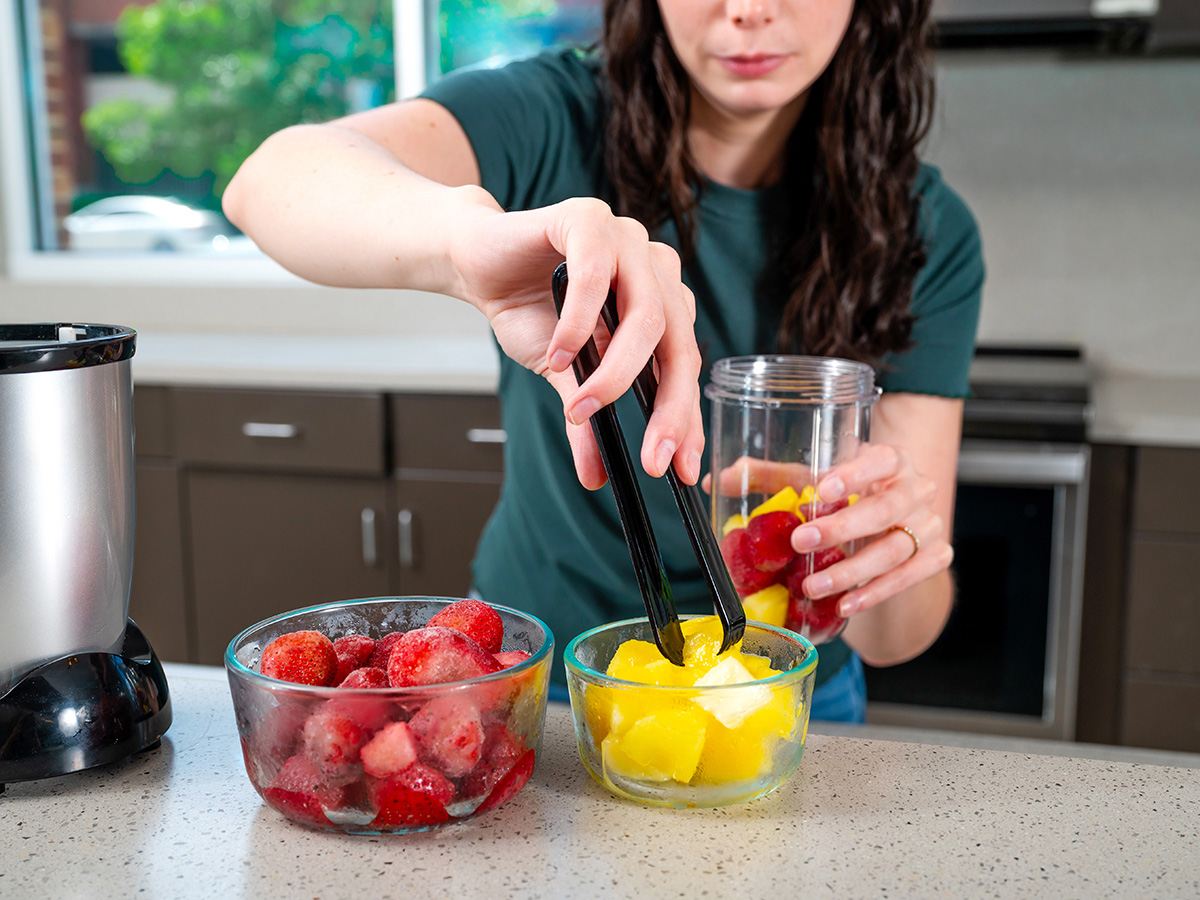 In most cases, frozen fruit does not contain any preservative ingredients.As the summer heat blazes on, reaching for a cool, refreshing snack might lead you to an unexpected hero in your freezer — frozen fruit. According to a University of Alabama at Birmingham nutrition expert, it is not just convenient, it is packed with health benefits.
In most cases, frozen fruit does not contain any preservative ingredients.As the summer heat blazes on, reaching for a cool, refreshing snack might lead you to an unexpected hero in your freezer — frozen fruit. According to a University of Alabama at Birmingham nutrition expert, it is not just convenient, it is packed with health benefits.
Tara Kelly, Ph.D., R.D., an instructor with the UAB Department of Nutrition Sciences, says one common misconception about frozen fruit is that it is less healthy and more processed.
“Freezing is just a means of preserving freshness so, if no other ingredients have been added to the product, there is nothing that makes frozen fruit less healthy than fresh fruit,” Kelly said. “Technically, yes, frozen fruit is ‘more processed’ than fresh fruit; but the means in which it’s considered ‘processed’ is a bit misunderstood.”
Kelly says to prepare for packaging, these fruits are washed, peeled, and cut or sliced in some cases, then flash frozen. She says all of this is considered processing, but it is no different from steps someone may take in their own kitchen when preparing fresh produce or freezing it at home.
Kelly says it is important to always check food product labels by looking at the “Ingredients List.” She says the only ingredient that should be listed is the fruit or fruits included in that package.
“Fruit does contain naturally occurring sugars, and sometimes sugar can be added to products to enhance their sweetness,” Kelly said. “Despite this, most frozen fruit products contain only the fruit itself, so these typically do not contain any added sugars.”
In most cases, frozen fruit does not contain any preservative ingredients. When fruit is commercially frozen, the freezing process is a preservation method, so no additional preservatives are needed for the product to maintain its freshness.
Fresh or frozen?
Kelly says fruit that is harvested for freezing and packaging is picked at its peak ripeness, which means that the plant is fully grown and ready to be eaten. This is the point when fruit is most dense with beneficial vitamins, minerals and antioxidants.
Kelly says the nutrient content may change if frozen fruits are cooked or thawed since some nutrients can be destroyed due to heat, which is the case for more foods than just frozen fruits; some nutrients are simply heat-sensitive.
Freezing locks in nutrients, helping preserve their quality so you can enjoy the same health benefits from your fruit, whether it has been in the freezer for days, weeks or even months.
“By comparison, fresh fruits are often picked prior to that point of peak ripeness to prevent spoilage from occurring before these foods get to consumers,” she said. “This means that these fruits are often still ripening in transport or while in the grocery store, rather than ripening on the tree or vine in which they’re grown, which may impact nutrient levels.”
 Tara Kelly, Ph.D., R.D.She says that this is not the case if purchasing directly from a local farm or farmers market since produce from those vendors typically do not have to endure long transport and are sold directly to consumers.
Tara Kelly, Ph.D., R.D.She says that this is not the case if purchasing directly from a local farm or farmers market since produce from those vendors typically do not have to endure long transport and are sold directly to consumers.
Fresh fruits can be frozen at home to help preserve the vital nutrients.
“Items we freeze ourselves at home do not maintain quality for quite as long as commercially frozen items, though,” Kelly said. “These should be consumed within the year because some quality may be lost after this point.”
From Kelly’s cookbook
“One of my favorite oatmeal recipes for a nutrient-packed, filling breakfast incorporates rolled oats, liquid egg and blueberries,” she said. “I like to top this breakfast with frozen blueberries rather than fresh, because I like how the flavors meld into the oatmeal when you add the cold berries to the warm, cooked oats.”